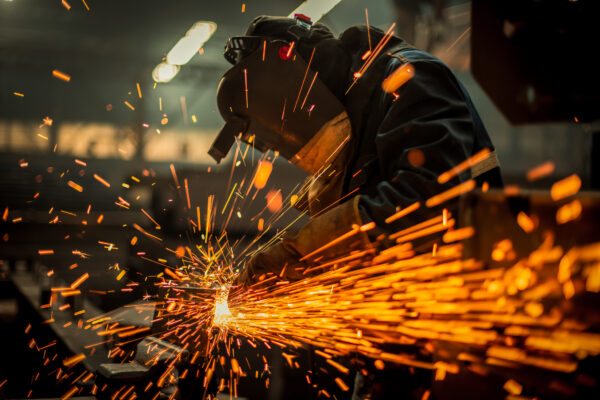Over the last year, I’ve witnessed significant changes transforming the manufacturing industry. One driver of this change – which won’t surprise you – is artificial intelligence (AI), and it is the most influential force shaping both professional and personal lives. However, AI isn’t the only noteworthy trend manufacturers need to focus on.
As I collaborate with clients and colleagues, several trends consistently emerge:
The Problem with Industry 4.0
One of the challenges with the term “Industry 4.0” lies in understanding its practical implications. Here’s the definition I use: Industry 4.0 leverages data and technology to create connected, adaptable factories that optimize production, predict issues, and personalize the output. This drives efficiency, sustainability, and innovation.
As I’ve worked with clients exploring their use cases, solutions frequently blend data, connectivity, and AI. This blend leads to tangible business outcomes like real-time insights, connected devices/machines, rapid production line adjustments, cost reduction, data-driven decision-making, predictive maintenance, customized production, and global standardization across manufacturing facilities.
The question isn’t who wants this – it’s how to successfully implement it.
Embracing Direct-to-consumer
Many manufacturers are seeking a closer connection with their customers, and this is largely driven by intensifying customer demands for seamless digital experiences modeled after companies like Amazon. However, developing a direct-to-consumer (D2C) strategy presents many challenges. Manufacturers with long-established business models historically have relied on partners and dealers for customer relationships and data. A shift towards direct engagement requires a significant transformation.
Additionally, decades of acquisitions have often led to fragmented commerce and marketing platforms ill-suited for D2C optimization. Despite these obstacles, the potential benefits are compelling: increased profits, stronger customer relationships, greater control over the customer experience, access to new markets, and enhanced brand awareness make the D2C investment worthwhile.
Reshoring Operations and Talent
The COVID-19 pandemic exposed vulnerabilities in global supply chains, particularly for manufacturers reliant on overseas production and parts. The well-documented challenges with shipping containers significantly disrupted operations. This has spurred a growing trend known as reshoring, where companies bring manufacturing jobs and production facilities back to their home countries.
While reshoring can lead to increased production and labor costs, along with initial investments in relocating operations or finding domestic suppliers, potential skill gaps also need to be addressed. However, careful planning can mitigate these challenges. The potential benefits of reshoring are substantial: job creation in the home country, improved product quality due to closer oversight, reduced supply chain costs from shorter transportation distances, enhanced protection of intellectual property, and potentially improved customer service through faster response times.
The Push for Sustainability
Sustainability has become a critical focus for businesses and consumers alike. While initiatives like electric vehicles (EVs) are prominent examples, sustainability encompasses a much broader scope. Manufacturers are demonstrating their commitment by reducing their use of energy, natural resources, and materials throughout production processes and product design, while also ensuring their suppliers adhere to similar standards. This focus on sustainability is increasingly influencing consumer purchasing decisions, leading to several compelling business outcomes such as attracting environmentally conscious consumers, increases brand loyalty, reduces resources and operational costs, government incentives, and drives innovation.
These trends, driven by technological innovation and shifting consumer preferences, represent more than just changes for the manufacturing industry – they hold the potential to redefine it entirely. Manufacturers who proactively address these shifts stand to gain significant advantages. They can unlock operational efficiencies, deepen customer loyalty, bolster supply chain resilience, and champion environmental responsibility. The future of manufacturing belongs to those who seize the opportunities of today.
Tap into Perficient’s manufacturing industry expertise to assess your capabilities and build a strategic roadmap to capitalize on these trends right now.

